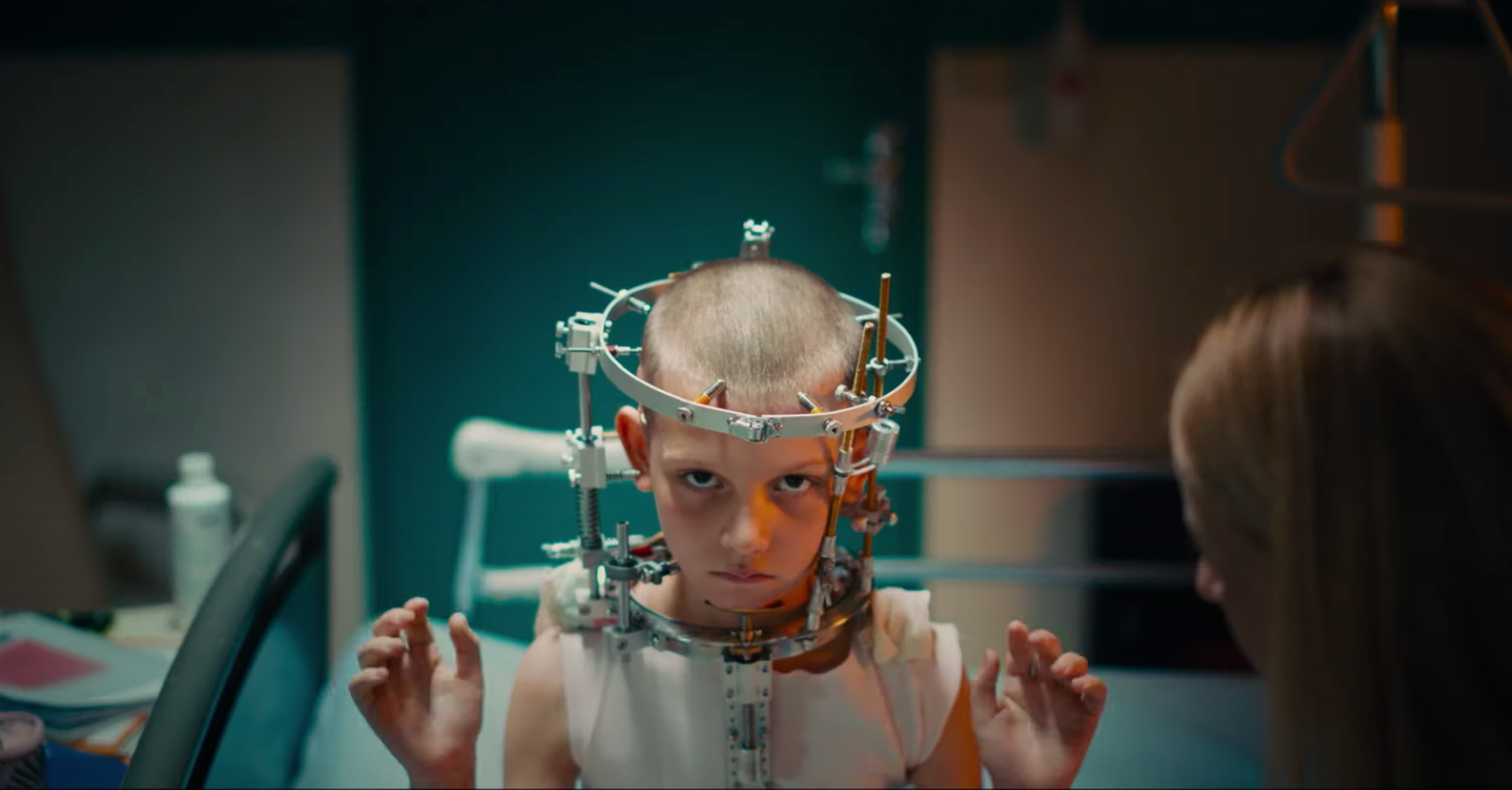
The first 30 minutes of Titane is some of the most go-for-broke filmmaking you'll ever see. In its opening, a girl gets injured in a car accident as her father explodes at her for humming too loudly. To save her life, surgeons insert a titanium plate into her head, which seems to give her a metal fetish. As a grown woman, Alexia (Agathe Rousselle, nailing her first movie role) is an exotic dancer at car shows who is sexually aroused by the cars. Also, she's a serial killer.
All of this surrealism and graphic horror make it clear that Titane was never conceived of as "awards bait." Yet, this film surprisingly won this year's Palme d'Or, the highest honor at the Cannes Film Festival. Further, it's only the second film directed by a woman to have done so. Director Julia Ducournau already had one cult hit with the cannibal movie Raw, and with Titane's success, she's established herself as a horror auteur to pay attention to in the genre.

Despite the hype about audiences losing their minds over the film's absurdity, it's somewhat surprising that after the over-the-top intensity of its beginning, Titane calms down for most of its second act. Needing somewhere to hide from the authorities, Alexia decides to impersonate a missing teenage boy named Adrien and enter his father's life. The boy's father, a steroid-addicted firefighter named Vincent (Vincent Lindon), is grateful to have his "son" back, excusing his unusual behavior as symptoms from the past trauma he must have endured.
This story of a liar infiltrating a grieving family is similar to the logline for fellow Toronto International Film Festival selection Dear Evan Hansen, though Titane handles this premise a lot more interestingly. Because of Titane's surrealism, the lies and struggles of Alexia/Adrien feel less literal and more metaphorical. Though Alexia's not a trans character, it is very easy to read a trans or non-binary narrative into Titane, given all of the film's anxiety about passing within the construct of masculinity.

Titane is entranced by the appeal of masculinity while simultaneously aware of the ways its expressions can turn toxic. The character of Vincent is a mess of paradoxes, in some ways a positive figure who loves and accepts his "son," but this love comes out in ways that border on unhealthy. He's prone to fits of rage and is literally poisoning himself with excess testosterone. The film's domestic sequences eventually explode into Cronenbergian terror. There's a ticking time bomb at the center of Alexia's narrative which keeps the film firmly rooted in horror.
Titane is a movie where describing its particular details can't quite tell you what it's like to experience it. Parts of the plot sound like a practical joke, but even its most ridiculous moments provoke gasps rather than laughs. It's got the feel of cyberpunk but is perhaps too abstract and disconnected from anything "science" to play like science fiction. The movie's not for the faint of heart, but it's also not just exploiting sex and violence for their own sake. Ducournau always knows exactly how much to show to get a reaction but still makes everything feel purposeful -- even if it's hard to explain or understand what that purpose is.
The inscrutability of Titane and its cold alienating protagonist make for a challenging movie that will excite audiences in the gut and mind. Roger Ebert once described cinema as an "empathy machine." While Titane has moments of deep empathy for characters in pain, but its emotional distance creates a "psychopathy machine." However it makes you feel, it's a striking feat of engineering, offering a unique experience that no viewer is going to forget.
Titane comes out in theaters on Oct. 1.
0 Comments